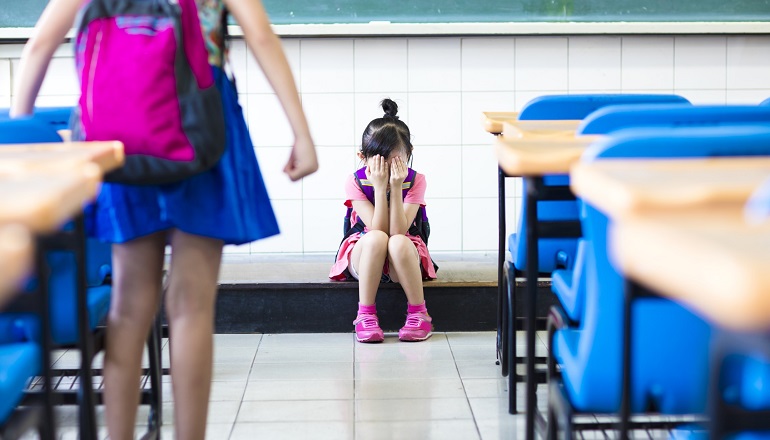I began to suspect something was wrong when my eight-year-old daughter, Sun-Jia, started coming home with uneaten lunches, the tofu and noodles that she proudly packed for herself each morning. "The big girls make fun of my food," she confessed.
This was the first ethnically related teasing she had faced. There had been times when I contacted her school to help her deal with other issues—when children asked her about adoption, and when the class assignment was to make a family tree. Now I wondered, should I let Sun-Jia manage for herself, or should I step in? How does a parent know whether a child is mature enough to handle challenging situations on her own?
We want to protect our children, but we also want them to stand up for themselves. When your child is faced with challenges at school, ask yourself three questions:
1. Have I shown my child how to handle this situation, or is it entirely new for her?
If your child has seen you handle nosy adoption questions, she may be able to form her own solution. Ask your child whether she can handle this situation, offer her guidance, and then let her try her wings. For example, if she's being teased, practice appropriate responses at home, so she's ready to deal with the bullies on the playground.
2. Does my child have her own plan to handle the situation?
Even if this is a new situation for your child, such as the family-tree assignment, she may be able to deal with it on her own. Ask your child whether she has a plan. If she doesn't, ask whether she would like you to help her develop one.
In many cases, the plan will be to speak with the teacher. Your child may feel she can do this on her own, but if she is too intimidated, you can do it together. When you meet with the teacher, encourage your child to "go first" and explain her dilemma. You provide moral support and the occasional explanation or suggestion. Your child will be proud if she can negotiate the situation herself.
3. Can I coach my child on what to say or do, or does the situation call for more information or negotiation than a child can provide?
You can start by trying coaching. Role-play with your child, playing the part of your child first (as a model), then playing the teacher or other child (to give your child practice). Role-playing builds your child's self-esteem and gives you a chance to see whether your child is ready to handle this on her own. However, if you know that the teacher or the other person involved will be unlikely to respond empathetically, you should step in immediately. Have a discussion before and after the intervention with your child, to help her understand what happened and to be better prepared if a similar situation arises.
In Sun-Jia's situation, it became clear that the power balance was unequal: She was a younger girl facing older students, and she was pitted against an unresponsive lunch supervisor. I wrote a note to the teacher, because teachers are usually required to share notes from parents with the principal.
I was happily surprised when my daughter announced that every class in school took the first period of the day to discuss individual differences, especially food preferences. The principal had personally escorted her around the school to identify the bullies, who were then reprimanded. Sun-Jia felt empowered to stand up for herself and began to believe that justice could prevail.
JOIN You are viewing this exclusive AF content as a guest. To access our full Adoption Parenting Library — plus digital issues, eBooks, expert audio and more — join Adoptive Families today.  |



